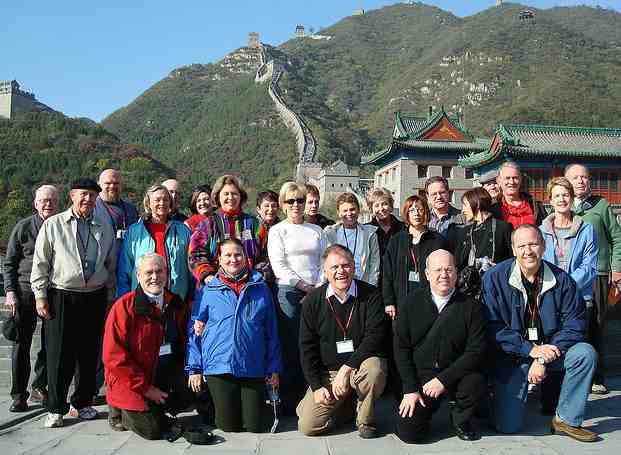20 Good Tips For Deciding On China Tour Websites
Wiki Article
Top 10 Tips To Shop At Markets On The Streets Of China. Markets In China
1. Get there early and visit the market early in morning as vendors are likely to have set up their stands and offer better deals for their very first sale.
Pro: Early shopping provides more options and greater bargaining opportunities.
Con: It requires waking up very early. This may not work for the schedule of everyone.
2. Bring Cash
Cash is accepted for payment at many markets, though mobile payment options such as WeChat Pay or Alipay have become increasingly popular.
Cash payments are easier to make and may assist you in negotiations.
Contraint: Carrying cash may increase the risk of loss and theft.
3. Learn Basic Mandarin
Be familiar with phrases like "Zhege qian duoshao?" (How Much is this?) or "Pianyi Yudian Ba" (Can you make it cheaper?) Communication is the key to effective communication.
Pros: Establishes a rapport with vendors, and shows respect for the local culture.
Cons: Limited vocabulary may still lead to misunderstandings.
4. Check your goods carefully
Be sure to inspect all items for imperfections or inconsistent quality, particularly clothing, electronic devices, and handmade crafts.
Pro: Ensure that you get the product you're paying for and avoid disappointment.
Pros: Simple to use, but it could be a hassle for vendors.
5. Bargain Confidently
You should not hesitate to bargain since it is common on the streets. First, you should try to lower the price by 50%-70%.
Pro: Bargaining reduces costs.
Pros: It could be daunting for those who aren't familiar with the process.
6. Watch out for Counterfeits
Be cautious when purchasing brand-name items such as bags, watches and electronics.
Pro: Avoids wasting money on cheap imitations.
Con Pros: Genuine products are difficult to come by and are more expensive.
7. Observe Local Customs
Tips - Change your strategy based on the way locals shop and negotiate.
Pro helps you blend into and avoid cultural blunders.
Cons: It might take some time to learn the various customs.
8. Keep Valuables Secure
TIP: Use anti-theft bags or put phones and wallets in a safe place to keep them safe from pickpockets in busy markets.
Pro: Reduces the risk of theft in areas with high traffic.
Pro: Extra security measures may be uncomfortable or restrictive.
9. Before buying food, test it before purchasing.
Take a look at an example of snacks or dried foods before buying.
Pro: Make sure you are happy with both the taste and freshness of your food.
Con: Some vendors might pressure you to buy after they have provided a sample.
10. Know the Market Then, focus
Tips - Every market is specifically geared towards a certain type of item, such as the Yuyuan Market (in Shanghai) to purchase souvenirs, or Panjiayuan (in Beijing) for antiques. You can research your goals and then align them with the market you're attending.
Benefits: You'll reduce time by focusing your focus.
Pro: It limits spontaneity when you are confined to your studies.
The benefits of shopping at markets on the streets
Unique Discoveries: There are many things aren't found in the traditional retail store including handmade products and local food items.
Street markets are often cheaper than shopping malls and other stores.
Cultural Experience - Interacting with local vendors and navigating market can be a great way to get a feel for the culture.
One market could have everything, from clothing and food items to souvenirs.
Pros and Cons of Shopping at Street Markets
copyright Goods: High likelihood of encountering copyright or poor-quality items.
The crowds at markets can be extremely crowded, especially during weekends and holidays.
Vendors can be aggressive: They may try to entice you to buy their goods, which could make the entire experience more challenging.
No Returns: The majority of purchases are considered final and there is little recourse for refunds or exchanges.
If you are prepared and follow these tips, you will be able to take advantage of the most of China's vibrant streets markets. Take a look at the recommended learn why this spot is so famous for site recommendations including zechawa valley tour route, mount li a royal garden since the zhou dynasty, tours for the disabled, guanlin temple, shopping in macau, chinese wood carving originated in neolithic period, top three buddhist temples in chengdu, great tang all day mall xian.html, shopping in dunhuang, xishuangbanna and more.

Top 10 Tips For Visiting Chinese Temples And Avoid Paying Fees
1. Check Entrance Fees in AdvanceTip: Many famous temples have a fee for entry that can vary between Y=20 and 200 or more. Find out the cost of tickets in advance to help you plan your budget.
You can plan for the payment in advance and avoid any surprises.
Con: Unexpected additional costs, such as charges for exhibits, can arise.
2. Bring cash or a digital Payment
Certain temples will only accept cash or the most popular Chinese payment systems like WeChat Pay or Alipay.
Pro: Smooth entry and no payment delays.
Cons: Not many options for foreigners who don't know how to use digital payment apps.
3. Watch for signs that mention photography
Tips: Always look for the posted signs that indicate whether photography is allowed. Many temples limit photography in the sanctuaries of sacred artifacts or inside sanctuaries.
Pro: Prevents unintentional disobedience or rule-breaking.
Con: Rules can differ between areas within the same temple, which requires extra care.
4. Avoid Flash Photography
Even if photography is allowed within a certain area, it's best to be careful not to use flash. It can damage the artifacts or disturb worshipers.
Pro: Preserves temple's art and the surrounding.
Con: Insufficient lighting can result in less-than-ideal photos.
5. Respect the privacy of worshippers
If you don't have permission avoid taking photos of people participating in religious ceremonies.
Pro: Respects personal space and cultural sensitivity.
Cons: You might not be capable of capturing the full atmosphere of the temple.
6. Be sure to follow the Drone Regulations
A tip - Drones usually are not allowed in temples. Be sure to check local regulations if you are planning to use a drone for aerial photography.
Pros: It's safe from fines and confiscation of your drone.
Cons: There isn't much opportunity to create unusual angles in photography.
7. Prepare for Additional Fees
Tips Some temples require additional fees for photography permits. This is particularly applicable to equipment such as DSLRs and tripods.
Pro: This guarantees that photos are recorded with high-quality and legal.
Cons: It adds to the the total cost of the trip
8. Dress Modestly
Dress appropriately in temples. If you don't, you may be denied access or banned from certain areas.
Pro: Shows respect for the setting of worship and assists you blend in.
Con: May need extra preparation, especially in the summer heat.
9. Avoid crowds when taking photos
Visit the site early in morning or late in the afternoon, to stay clear of crowds, and also take pictures without obstructions.
Pro: Improves the quality of images and experience.
Con: This could require you to alter your schedule. It is not always convenient.
10. When in Doubt, ask for Permission
Ask temple staff and signs about rules when in doubt.
Pro: You'll be able to be sure to avoid accidental rule violations.
Con: Language barriers might make communication difficult.
Benefits of Paying Fees and Photography Rules
Respect the diversity of cultures:
Artifact Preservation: This helps protect fragile artwork and buildings.
Positive Experiences: Beware of confrontations with temple staff or worshippers.
Legal Compliance: Eliminates penalties or fines for breaking photography laws.
Cons of Following Fees & Photography Rules
Increased costs: Additional fees, such as for permits or entry fees could add up.
A limited creativity: Limitations could hinder the shot you want to make.
Language Barriers. It is difficult to communicate or comprehend local signage.
It can take a lot of time to research. Preparing ahead of time takes more effort.
Respecting photography rules and fees will allow you to have an enjoyable and respectful experience at the stunning temples of China. They are also protected in their cultural, spiritual, and historic authenticity. Have a look at the top learn about this historical site for website advice including shopping in shangri la, top three buddhist temples in chengdu, four great classical novels.html, entertainment in hong kong, jiuzhaigou, four gentlemen in chinese culture, lijiang tour maps, ancient football in china cuju in ancient china, shopping in nanjing, four gentlemen in chinese culture and more.
